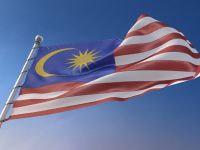Saudi Arabia, the cradle of Islam, is struggling to come to terms with the anti-terror war Washington is set to unleash on its doorstep against Muslim fanatics, many of them Saudis.
"Saudi Arabia is in an embarrassing situation without precedent," a Gulf diplomat told AFP on Thursday. "There is fear and a wait-and-see attitude at every level, official and public."
Caught between the demands of an ally "vital for the survival of the regime" and the imperatives of a very conservative public, the kingdom's rulers "are struggling to take a stance," he said.
The United States is not only Saudi's main arms supplier and leading economic partner, including as a buyer of the crude oil which accounts for 80 percent of government revenues, it has also protected the country from Iraq since Baghdad invaded neighboring Kuwait in 1990.
Thousands of US soldiers and dozens of warplanes are based in the kingdom fuelling a latent anger among some elements which can boil over into violence.
Anti-American attacks left five dead in the capital Riyadh in 1995 and 19 dead in 1996 at a US barracks in Khobar.
Osama bin Laden, prime suspect for the US terror attacks which left nearly 7,000 dead on September 11, has made the removal of US troops from the birthplace of Islam the leitmotif of his campaign against the royal family.
The campaign has found an echo among the Saudi population, which lives under a regime founded exclusively on Islamic law and which is less and less able to provide all the benefits of a welfare state and is fighting high unemployment, noted an Arab analyst, who asked not to be named.
"Saudis are bound to contest the 'crusade' launched by the Americans who unfortunately at one stage mixed up Islam with terrorism," he said.
"And the state terrorism practiced by Israel on the Palestinians only exacerbates the animosity of Saudis, as well as other Arabs, towards a war against a Muslim country, Afghanistan, and maybe Arab countries too."
With 1.2 billion Muslims claiming the heritage of the holy cities of Mecca and Medina, the government not surprisingly remains reluctant to become embroiled in an ill-defined, anti-terrorist coalition led against bin Laden, who was stripped of his Saudi nationality in 1994.
"The hesitation shown by Saudi leaders can also be explained by the lack of clarity surrounding the coalition," another diplomat said.
"The lack of proof about who carried out the attacks, for which several suspects are Saudis according to Washington, further complicates the situation."
"And the kingdom is being forced to come clean on the financing of fundamentalist movements for which it is believed to be the main sponsor and instigator with the blessing of the United States at the time of the Cold War," he added.
"Dismantling the nebulous fundamentalist movement and cutting off its financial resources risks igniting trouble which could have unforeseen circumstances in a country where the influential religious clergy, powerful interest groups and the complex tribal structure of the population carry much weight," the diplomat warned.
"These pitfalls explain the hesitation of Saudi rulers to commit themselves to the coalition led by the United States. This attitude sharply contrasts with their total and immediate commitment to the coalition set up by the father of today's American president when Iraq invaded a neighboring country, Kuwait," he noted.
"But once war is unleashed on the Taliban ... the Saudis will end up joining the Americans, who will scarcely leave them any choice” -- DUBAI (AFP)
© 2001 Al Bawaba (www.albawaba.com)







